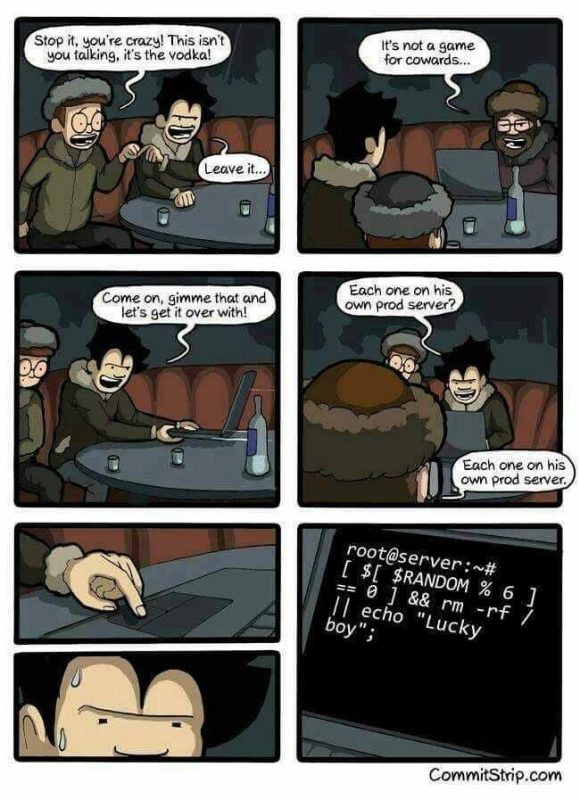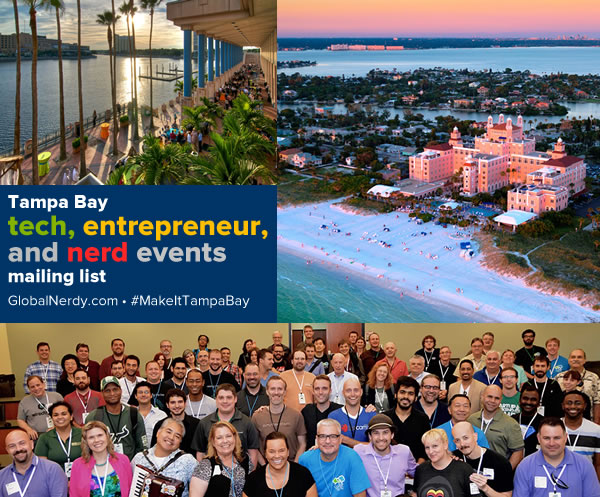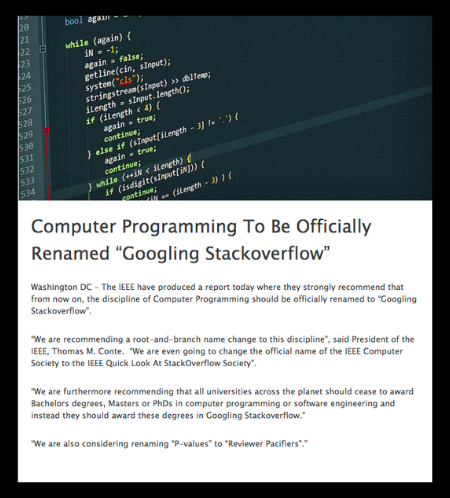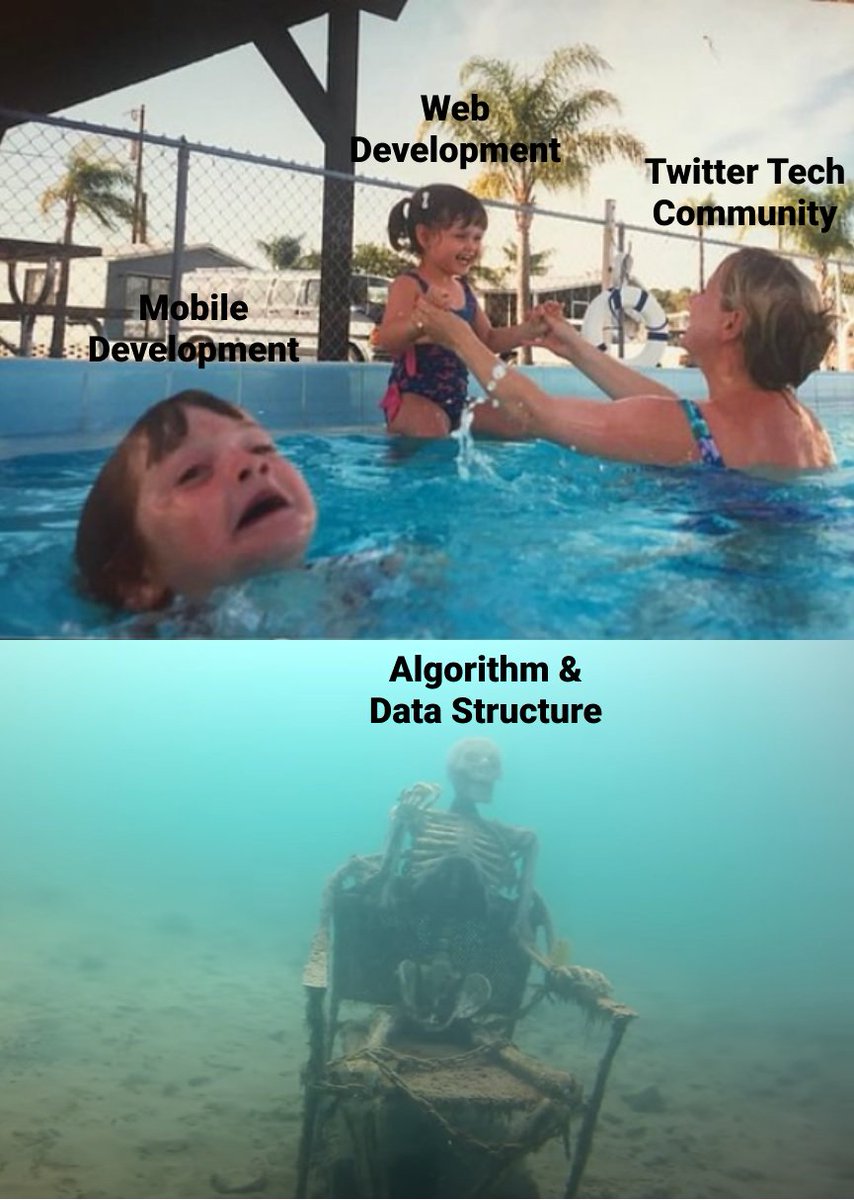
I have good news for those of you who wanted a second season of WeCrashed! As I write this, the top story on Techmeme is the New York Times article on Andreesen Horowitz’s $350 million-ish investment in Adam Neumann’s latest business outing, a “residential real estate management” startup called Flow. There’s also a post by Andreesen Horowitz that describes Flow and yet somehow doesn’t get around to explaining what this company does.
Who is Adam Neumann?
If the name Adam Neumann isn’t familiar to you, let me sum him up for you as quickly as I can: he’s the grifter behind what Jacobin aptly described as “the biggest, dumbest scam in American history.” That scam is WeWork, a millennial high-concept version of the office space rental company Regus, that marketed itself as a Silicon Valley-style tech company with Fyre Festival-like hype (in fact, Fyre Festival founder Billy McFarland rented office space from WeWork).
By hyping themselves as more than just an a company buying and renting expensive office space to the generation that could least afford it (but with free beer and wine — at least for a little while), and despite hemorrhaging wheelbarrows of cash, they managed to con their primary investor, SoftBank, out of about $10 billion in investments and into a $47 billion valuation. That fell apart after they filed for an IPO, the mandatory disclosures for which revealed their financial fakery.
Then came the more interesting stories: the tales of Neumann’s bizarre behavior, from often walking around barefoot in a weed-induced haze and insisting that employees do shots of expensive tequila with him, to fomenting not just a cult of personality, but a generational dynasty in the spirit of the emperor from Asimov’s Foundation novels.
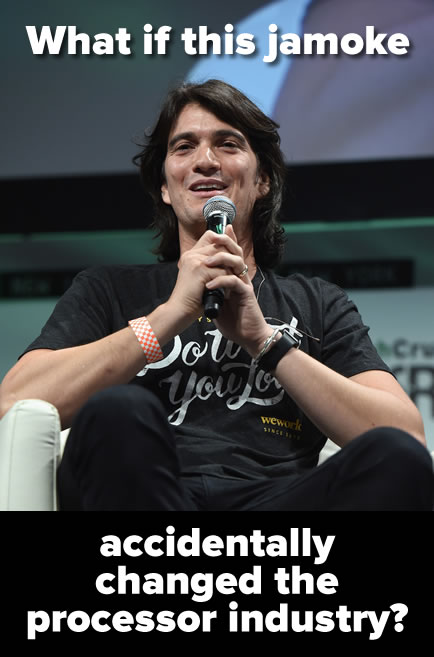
I wrote about this in What if WeWork’s jamoke CEO accidentally changed the processor industry?
The immediate aftermath:
- The IPO was cancelled 33 days after it was launched and all the WeWeirdness came to light.
- SoftBank took over WeWork.
- Neumann’s reward for screwing up? SoftBank would give him about $1.7 billion to step down from WeWork’s board and dissociate himself from the company.
What was Adam Neumann’s follow-up act?
What do you do when you’ve been exposed as the bozo behind the “biggest, dumbest scam in American history?” You look for even dumber people to fleece. So Neumann got into Web 3.0.
Neumann’s Web 3.0 venture, Flowcarbon, a company that purports to “use blockchain technology to put carbon offset credits on-chain, accelerating the creativity and scalability of climate change solutions.”
In spite of a bullshitty-sounding mission and being run by a known bullshitter, Flowcarbon somehow raised $70 million — $32 million in fresh equity, and another $38 million through the sale of Flowcarbon’s fake money — er, cryptocurrency — which go by the name “Goddess Nature Tokens”. Their big sucker — er, investor — this time: Andreesen Horowitz, a.k.a. their shortened name, a16z.
But that was in May, which was nearly four months ago — a whole damned internet year!
You see, as of mid-July, the Flowcarbon project has been, in their own words, “paused indefinitely.”
Third time’s the (c)harm
And so we come to Neumann’s third big questionable business outing: this “residential real-estate management” startup, which took his previous venture’s name and shortened it to Flow.
Feel free to steal this joke: Creating the new company name from the previous one is probably Neumann’s only success in carbon removal.
Backing Flow is — once again — Andreesen Horowitz, who this time threw even more money at Neumann and company: $350 million, which the New York Times describes as “the largest individual check Andreessen Horowitz has ever written in a round of funding to a company.” a16z value Flow at $1 billion.
Flow appears to be yet another institutional investor on a mission to buy up all the available real estate and bring back feudalism.
As the New York Times puts it:
Neumann has purchased more than 3,000 apartment units in Miami, Fort Lauderdale, Atlanta and Nashville. His aim is to rethink the housing rental market by creating a branded product with consistent service and community features. Flow will operate the properties Neumann has bought and also offer its services to new developments and other third parties. Exact details of the business plan could not be learned.
I fear this idea has legs, but I also take comfort in the fact that Adam Neumann is at the helm. Why? Because he’s one of my south-pointing compasses.
The importance of south-pointing compasses

You’ve probably been told about the value of having mentors and role models, because they provide us with a “horizon” — a direction to move towards, something to strive for, and examples to follow.
But what’s equally valuable is the type of person I refer to as a “south-pointing compass,” or what others have called an “anti–role model.” It’s just as important to know what not to do, which is why we in tech like to look for antipatterns. In fact, south-pointing compasses are antipattern practitioners.
I’ve found it very helpful in my career to maintain relationships with a number of south-pointing compasses because they’re so useful. Some of these relationships are parasocial (I know them, but like I know characters in a book, not personally) or arm’s length (I know them, but keep things at the cordial acquaintance level). All of them have at least one valuable thing to teach, even if that lesson simply is don’t do what they do:
- That striver who always follows the latest flavor-of-the-week management trend, and executes it poorly, only to dump it for the next trend? South-pointing compass.
- That person who keeps hopping onto the next big language/framework/platform and starts but never completes any projects with that thing? South-pointing compass.
- That coworker who constantly performs what HR kindly calls “career-limiting moves?” South-pointing compass.
- James “Google ManifestBRO” Damore, the person Robert C. “Uncle Bob” Martin became (or maybe he was always that way and just decided to reveal his true, regreattable self), Curtis “Mencius Moldbug” Yarvin and their ilk? South-pointing compasses, and holy crap, does our industry have waaaaay too many of them.
So I’ll be watching a16z’s and Flow’s moves. And employ George Costanza from Seinfeld’s only winning tactic: Do the opposite of what they do.
